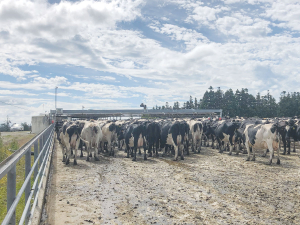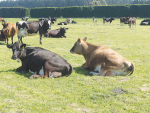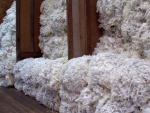New regulations on caring for cows while they are off-paddock have taken effect.
Developed by the National Animal Welfare Advisory Committee (NAWAC) after consultations with farmers and others, the new rules address behavioural needs when cows are on hard surfaces, including feed-pads, stand-off pads, wintering pads, and loose-housed and free-stall barns.
The Government agreed to amend the code of welfare for dairy cattle following a recommendation from NAWAC.
Keeping cows off-paddock, especially long term, can present risks to animal welfare and the new standards address this.
NAWAC chair Dr Gwyneth Verkerk says dairy cattle kept in off-paddock facilities beyond three days must now have a well-drained lying area with a compressible soft surface or bedding and shelter. It also wants dairy cattle that are housed long-term to have access to outdoors, but affected farmers have time to comply.
“The minister has agreed to delayed provisions for outdoor access and his officials will be working with us to determine how to implement these,” Verkerk said.
“The aim of the amendment is to encourage all those responsible for the welfare of dairy cattle to adopt the highest standards of husbandry, care and handling.”
DairyNZ says it has worked with the Ministry of Primary Industries (MPI) on the review.
At the heart of New Zealand dairy farming is treating every animal with care and respect, DNZ says.
“The freedom cows have to express their natural behaviours in our pasture-based systems is widely recognised as beneficial for the cow, however we do have challenges associated with keeping our cows outdoors.
“These minimum standards help safeguard cows want to express those natural behaviours, such as lying comfortably, and they protect cow health and welfare wherever they are on farm and whatever the weather.”
Off-paddock facilities can in some circumstances be good for the environment and animal health. About 40% of farms have some sort of off-paddock facility but most of these are used for feeding cows when grass is short, and cows spend a couple of hours eating on the pad, usually after milking, to top up their daily requirements.
No more hard yards
• If farmers are wintering cows on hard surfaces such as stones or concrete with no soft lying area they will need to offer a compressible surface for the cows to lie on, eg concrete covered with rubber
• If farmers are calving cows on a hard surface such as concrete or stones they must provide a dry, non-slip covering such as straw or rubber matting and manage the effluent build-up on the surface
• If farmers are calving cows on off-paddock facilities cows must have sufficient space to seperate themselves to calve away from the main group. This is a stocking rate consideration and is managed through springer identification
• If farmers have woodchip pads with no roof that become wet to the point of ponding or wet mud consistency, drainage must minimise the effects of wet weather to allow maximum space and comfort for cows to lie down
• It will affect farmers who use concrete feedpads during wet weather to avoid pugging and when cows are kept on feedpads for most of the day for several days. In this situation some access to drier paddocks must be achieved during each day, or rubber matting may be considered if pugging management is regular and prolonged.
The minimum standards have set a maximum time on hard or unsuitable surfaces as 16 hours a day, so it is possible to operate a 12 hour on 12 hour off, or between, milking strategy and remain within the standards.











